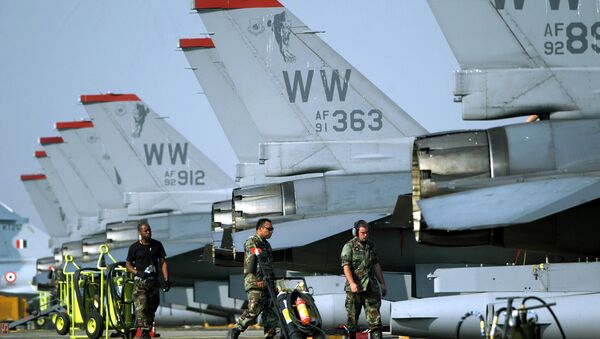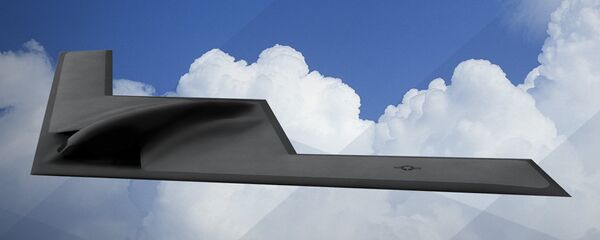Last Friday, Trump used his emergency powers to sign an executive order that would allow the US Air Force to recall up to 1,000 pilots from retirement. The order was supposed to address the force's dire shortage of pilots: it currently needs another 1,500 of them.
The issue was brought up in June by John McCain (R-AZ), chairman of the Senate Armed Services Committee.
"This is a full-blown crisis, and if left unresolved, it will call into question the Air Force's ability to accomplish its mission," McCain said at the time.
"One is competition from commercial airlines," says Richard Aboulafia, an aviation analyst and vice president of the Teal Group, an aerospace and defense analysis and forecast company.
"Another is delays and funding shortfalls in training. And, due to military operations, utilization of the aircraft and crew has been higher than expected," he continued, according to USA Today.
Potential USAF pilots also end up taking other employment opportunities because military operations overseas mean too little time to spend with their families at home, CNBC reports.
According to Brig. Gen. Mike Koscheski, the Air Force's Aircrew Crisis Task Force director, the Air Force looks "to provide more time for the aircrew member to have with their family and some work time at home," although "there's limits to that based on mission requirements."
Among other benefits, an Air Force fighter jet or drone pilot is now entitled to a bonus of of $35,000 a year for up to 10 years, for a maximum of $350,000. It is undisclosed whether the recall authority will affect this bonus.
It may not matter: the Air Force says it does not intend to put Trump's executive order to use.
According to Ann Stefanek, the chief of Air Force media operations, "The Air Force does not currently intend to recall retired pilots to address the pilot shortage."
"We appreciate the authorities and flexibility delegated to us," she added in a statement.
Before the order, any US military branch could only bring up to 25 pilots from retirement.
The powers that allowed Trump to sign the order were first invoked by President George W. Bush following the 9/11 attacks. Those emergency powers were supposed to be temporary, but Trump is now the third US president to extend the state of national emergency that has already lasted for 16 years.



